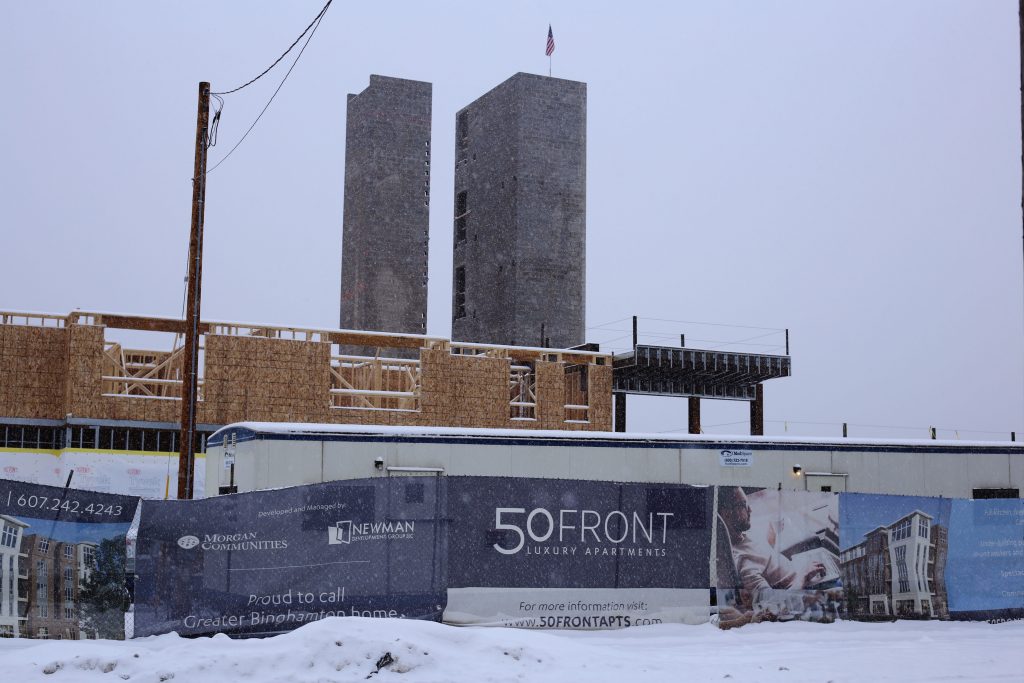
Just two years ago, 50 Front St. was one of the largest blighted properties in the city of Binghamton’s landscape. Once a hotel and nursing home, the building was abandoned in 2011, inviting dereliction and the occasional vandal. But by the end of this year, a mixed-use facility is set to open on the spot, boasting 122 market-rent apartment units and office space.
But one of the main actors in this transformation from blight to business, the Broome County Land Bank Corporation, might not have the future funds to continue acquiring and redeveloping properties. The land bank is a nonprofit corporation created in 2013 under the New York Land Bank Act, which allows municipalities to create land banks in their counties.
It has operated largely off of funds provided through the Land Bank Community Revitalization Initiative, a program operated by the New York State Attorney General’s Office. In March 2017, the Broome County Land Bank received a $650,870 grant to further its redevelopment efforts, but that funding is set to dry up after 2018.
“It’s not a very sustainable format because what we expend is more than what we get in,” said Margaret Scarinzi, the land bank’s executive director, at the presentation of the Land Bank Corporation’s annual report Tuesday afternoon.
The land bank’s biggest project of 2017 was the sale of 50 Front St. to 50 Front Street Associates, part of the Newman Development Group. The addition of market-rate rentals, which aren’t restricted by affordable housing laws, could help address a lack of apartment units in Broome County. Over 90 percent of available market-rate rental housing units in Broome County are occupied, and their rents have seen a steady increase in recent years, according to a report published last fall by The Agency, the county’s economic development organization.
In 2017, the land bank demolished six blighted properties; the year before, eight were torn down.
“One of the biggest advantages of the Broome County Land Bank is that it will be able to take a longer view into the future, and work toward a creative redevelopment of these significant sites,” said Frank Evangelisti, director of the Broome County Planning Division, when the land bank was established.
Broome County’s land bank is one of 23 in the state. Most of the newer banks are in the Southern Tier, Scarinzi said.
With Community Revitalization Initiative funding set to expire by the end of this year, the land bank is considering other options, including the Greater Binghamton Fund. The fund aims to reward projects with funding if they meet certain objectives, like improving the city’s “urban core.”
Another idea is creating allocations in the state budget specifically for land banks.
“The New York State Land Bank Association has been advocating for funding to become start of the state budget for 2019, but there’s no guarantee,” Scarinzi said.
Although the nonprofit’s financial future is unclear, the land bank has no plans to cease operating.
“Discussions will continue into 2018 on how to secure sustainable funding so, throughout the State, land banks can continue to combat blight, revitalize neighborhoods and support community and economic development,” the Land Bank Corporation’s 2017 report reads.
The Broome County Land Bank Corporation meets on the fourth Tuesday of each month at the Broome County Public Library. Meetings are open to the public.


